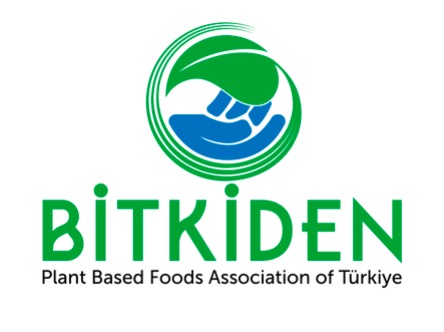BİTKİDEN draws attention to safe consumption on International Tea Day, Unpackaged and unregulated products pose a serious health risk
Tea is the most consumed beverage in the world after water. Turkey is the world champion in daily tea consumption per capita. Speaking on May 21, International Tea Day, Ebru Akdağ, Chair of the Board of Directors at BİTKİDEN, highlighted the food safety risks posed by unpackaged and unregulated products sold openly. Emphasizing the need to choose packaged, traceable, and food-safe products, Akdağ stressed that not every plant considered natural is safe.
 Tea, an indispensable part of shared moments, a symbol of hospitality, and a deeply rooted cultural ritual, is an integral part of daily life in Turkey, as it is around the world. As the second most consumed beverage globally after water, tea has become part of cultures across different regions, taking on unique meanings in each. On the one hand, tea is a symbol that strengthens social bonds; on the other hand, it is also a source of livelihood for millions of people globally. According to data from the Food and Agriculture Organization of the United Nations (FAO), tea production and processing provide a livelihood for more than 13 million people worldwide, especially small-scale farmers and their families. Furthermore, according to the FAO report, global tea consumption increased by 2% in 2022 compared to 2021, partly due to increased production of green tea and “other” tea types. Over the past decade, global tea consumption has increased by an average of 3.3% annually. Diversification and the development of value-added products play a key role in improving the sector’s performance, as consumer behavior is changing and there is a growing trend toward specialty teas and high-quality tea products.
Tea, an indispensable part of shared moments, a symbol of hospitality, and a deeply rooted cultural ritual, is an integral part of daily life in Turkey, as it is around the world. As the second most consumed beverage globally after water, tea has become part of cultures across different regions, taking on unique meanings in each. On the one hand, tea is a symbol that strengthens social bonds; on the other hand, it is also a source of livelihood for millions of people globally. According to data from the Food and Agriculture Organization of the United Nations (FAO), tea production and processing provide a livelihood for more than 13 million people worldwide, especially small-scale farmers and their families. Furthermore, according to the FAO report, global tea consumption increased by 2% in 2022 compared to 2021, partly due to increased production of green tea and “other” tea types. Over the past decade, global tea consumption has increased by an average of 3.3% annually. Diversification and the development of value-added products play a key role in improving the sector’s performance, as consumer behavior is changing and there is a growing trend toward specialty teas and high-quality tea products.
The FAO’s 2025 World Tea Day message also highlights this multifaceted importance. It calls for supporting small producers, promoting fair trade, and expanding climate-friendly production methods. FAO emphasizes that tea production is a tool that supports rural development and improves livelihoods, noting that it plays an important role in reducing poverty and ensuring food security, especially in developing countries. It also states that tea production needs to be made more resilient to climate change. Tea is highlighted as a product that contributes not only culturally but also to economic and environmental sustainability. In this regard, it is important for consumers to choose traceable, safe, and sustainable products, and for producers to adopt environmentally conscious methods. Speaking on the occasion of International Tea Day on May 21, Ebru Akdağ, Chair of the Board of Directors of BİTKİDEN, draws attention to the often overlooked issues of safety and lack of information in herbal tea consumption.
“Food safety risks are increasing in unpackaged products”
Stating that food safety is one of the most important issues to consider in tea consumption, Ebru Akdağ, Chair of the Board of Directors of BİTKİDEN, said, “For safe consumption of all types of tea, it is crucial that all steps from production to consumption are traceable, controlled, and carried out in accordance with standards. Every stage, from where the raw material is sourced to how it is processed and under what conditions it reaches the consumer, must be monitored in line with food safety criteria.”
Akdağ drew attention to the fact that teas sold openly and unpackaged pose serious public health risks: “It is unknown how long these products have been waiting, under what conditions they have been stored, and what may have been mixed into them. In such products, where inspection is insufficient, harmful microorganisms, toxins, pesticide residues, and heavy metals that threaten health are frequently encountered. Furthermore, it is impossible to obtain any information that is important to consumers’ preferences.”
Echoing the FAO’s message, Akdağ emphasizes that the key to sustainable growth in the tea sector is compliance with food safety and quality standards. Akdağ added, “While food safety risks are largely eliminated in reliable, packaged products from well-known brands, sustainable, traceable, and safe products reach consumers. Because the true value of tea is measured not only by its taste, but also by the care taken from production to consumption.”
“Being natural is not enough; a traceable production process is essential”
Noting that the emphasis on naturalness is sometimes misunderstood, Akdağ said, “Not every product claimed to be natural is safe. Many factors determine the safety of a product, such as how the plants are grown, under what conditions they are dried, and whether hygiene and analysis controls are carried out during the production process. As the BİTKİDEN Association, we emphasize that all products must be produced using traceable production processes, in accordance with scientific methods and the Turkish Food Codex. For example, while there are many different species known to the public as ‘daisy’, only ‘May daisy’ is a safe and pharmacologically defined species. The use of the wrong species, especially in products sold openly, can lead to serious health risks. Therefore, it is important to choose plants that are scientifically defined and produced under controlled conditions. Consumers also need to pay attention to these processes when making their choices; this is especially important for children, pregnant women, and those with chronic conditions.

